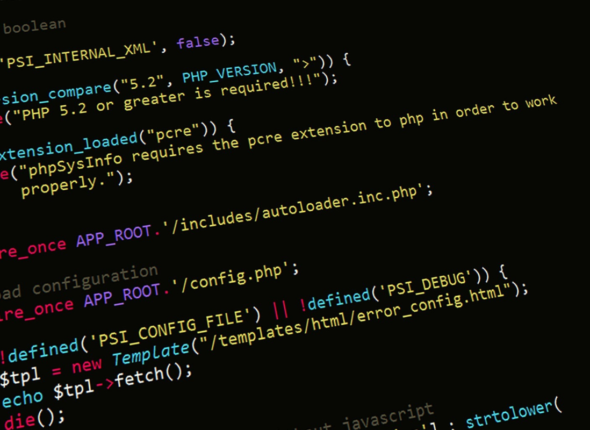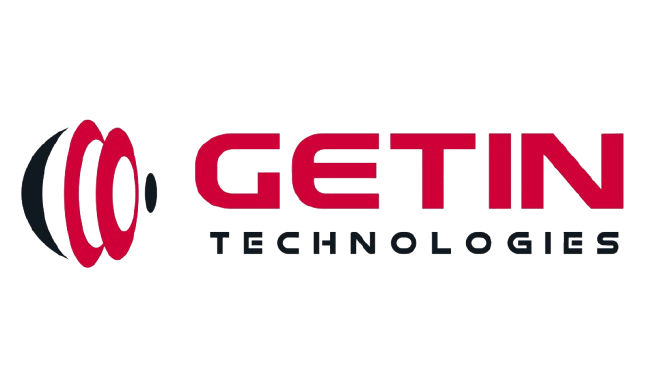World
Class Instructor
1:1 with
Industry Expert
400+
Global Hiring
55%
Avg. Salary Hike
- Overview
- Course Details
- Syllabus
- FAQ
Looking for the best Selenium training in Virudhunagar? Getin Technologies offers hands-on Selenium automation training with expert guidance. Our course covers Selenium WebDriver, TestNG, Java basics, automation frameworks, and real-time projects to help you master automation testing. Gain practical experience with live projects and boost your career in software testing. Our industry-expert trainers ensure job-ready skills with certification and placement assistance. Whether you’re a fresher or an IT professional, our Selenium training in Virudhunagar will help you advance in your career. Enroll now at Getin Technologies and become a certified Selenium automation tester! Contact us today!
Our Highlights
- Industry-Expert Trainers
- Comprehensive Curriculum
- 100% Practical Training
- Placement Assistance
- Flexible Learning Options
- Affordable Fees with Certification
- Career-Focused Training
- Personalized Mentorship
What you will Learn?
- Introduction to Selenium & Automation Testing – Understand the fundamentals of Selenium, its architecture, and how automation testing works.
- Selenium WebDriver & Locators – Learn to interact with web elements using Selenium WebDriver, locators (ID, XPath, CSS Selector), and browser automation.
- TestNG & Automation Frameworks – Implement TestNG for test execution, reporting, and integrate frameworks like Data-Driven and Hybrid Frameworks.
- Java for Selenium – Gain essential Java programming skills required for writing efficient Selenium test scripts.
- Real-Time Projects & Hands-on Practice – Work on real-world scenarios and live projects to enhance practical knowledge and job readiness.
Reasons to do Selenium Course

High Demand

Salary

Best for Beginners
Selenium Training Module 1
Java + Selenium + Framework
Total Course Duration: 70 Days
Selenium Training Module 2
Core Java + Selenium + Framework + Manual Testing + API
Total Course Duration: 100 Days
Selenium Training Module 3
Core Java + Selenium + Framework + Manual Testing + API + Appium
Total Course Duration: 115 Days
Selenium Course Overview
Getin Technologies offers the best Selenium training designed to help you master automation testing. This course covers Selenium WebDriver, TestNG, Java basics, automation frameworks, and real-time project implementation. You will learn how to automate web applications, write test scripts, and integrate Selenium with tools like Maven, Jenkins, and Git.
Our Selenium training in Virudhunagar provides live project experience so that you gain hands-on experience in software testing and QA automation. Whether you are a fresher or experienced, this course will provide a boost to your career. Get certified and get an opportunity to enjoy job offers in leading IT companies!
Future Scope for Selenium Developer
- High Demand for Automation Testers – With the increasing adoption of automation testing, Selenium developers are in high demand across industries.
- Opportunities in DevOps & Agile Environments – Selenium integrates well with CI/CD tools like Jenkins, making it essential for DevOps and Agile testing processes.
- Growing Career in AI & Machine Learning Testing – Automation testing is evolving with AI-driven tools, creating new opportunities for Selenium testers.
- Lucrative Salary & Career Growth – Skilled Selenium developers can earn competitive salaries and advance into roles like Test Architect or QA Manager.
- Global Job Opportunities – Selenium is widely used in software testing, offering job opportunities in India and abroad across IT companies.
What will you Learn ?





Prerequisites
The following requirements are advised in order to get the most out of our Selenium training in Virudhunagar:
- Basic understanding of manual testing (optional)
- Knowledge of Python or Java is beneficial but not required
Get Certified in Selenium Automation Testing!
Expert-led Selenium training in Virudhunagar can help you advance your career in software testing. Become a qualified Selenium Automation Tester by enrolling today!
Module 1 - Core Java (30 Days)
Introduction
- What is JAVA?
- Why JAVA?
- What is JDK, JRE & JVM and its differences
- JAVA Features
- Installation of JAVA
- Eclipse IDE
Sample JAVA Programs
- Run JAVA Program using CMD
- Run JAVA Program using IDE
- Naming standard of JAVA
- What is API, .jar files?
- What are Packages & its usages
Data Types
- Primitive Data Types
- Non-Primitive Data Types
- Enumerated Data Types
- Array
Operators
- Assignment Operators
- Arithmetic Operators
- Relational Operators
- Logical Operators
- Conditional Operators
Conditional Statements
- if
- if-else-if
- Switch
Control Statements
- For Loop
- While Loop
- Do While Loop
- While Do Loop
- Break Keyword
- Continue Keyword
- Go to Keyword
Basic OOPs
- What are OOPs?
- Why JAVA is OOPs Language?
- Class
- Object
- Method
- Syntax of Class, Object, Method
- Calling Method via Object
- Calling Method without Object (Static Method)
- Calling Method of another Class
Classes
- Object Class
- Object Class Method
- Scanner Classes
- Scanner Class Methods
- Final Class
- Singleton Class
- Diff b/w Final vs Non-Final Class
- Diff b/w Singleton vs Normal Class
Variables
- Global Variable
- Local Variable
- Instance Variable
- Static Variable
- Constant Variable
- Final Variable
Constructor
- Constructor
- Types
- This Method
- Super Method
- Copy Constructor
- Constructor Overloading
Access Modifier
- Public
- Private
- Protected
- Default
- Role of Access Modifier
- Methods
- Classes
- Variables
- Constructors
Advanced OOPs
- What is
- Inheritance
- Extends Keyword
- Base Class
- Derived Class
- This Keyword
- Super Keyword
Polymorphism
- Method Overloading
- Method Overriding
Advanced OOPs Abstraction
- Interface
- Abstract Class
- Difference b/w Interface vs Abstract vs Class
- Abstract Methods
- Non-Abstract Methods
- Implements Keyword
- Inhering Interface
- Inheriting Abstract Class
Encapsulation
- Data Hiding
- Getter Setter Methods
String
- String Builders
- String Buffer
Collections
- Collection Interface
- Types of Collections
- Difference of its Types
- List
- Set
- Map
Exception Handling
- What is an Exception?
- Try Block
- Catch Block
- Finally Block
- Type of Exception
- Throw Keywords
- Throws Keywords
- JAVA Exceptions
Module 2 - Selenium (20 Days)
Introduction
- What is Software Testing?
- Types of Software
- Why is Software Testing required?
- Types of Testing
- Manual – Functional / Non-Functional
- Automation
Automation Testing
- What is Automation?
- Why Automation is required?
- Automation Tools
- Advantage & Disadvantage of Automation
Selenium Introduction
- What is Selenium & its Version
- Why Selenium is preferred
- Selenium Features
- Advantage & Disadvantage of Selenium
- Comparison of Selenium with QTP/other Tools
- Selenium Components
- Selenium RC
- Selenium WebDriver
- Selenium IDE
- Selenium Grid
Selenium IDE
- Installation of IDE
- Features
- How to play & Record
- Create Test Case in JAVA
- How to Play Back
- Advantage & Disadvantage of Selenium IDE
Debugging
- Breakpoint
- Stat Debug
- Debug Mode
- Step Over
- Step Into
- Resume
Selenium – Launching Browsers
- Add Selenium Library
- Add Drivers
- Different Browser Launch
- Chrome
- Edge
- IE
- Firefox
- Launching URL
Selenium – Locating Elements
- HTML Tags
- Different types of Elements
- Textbox
- List
- Dropdown
- Label
- Checkbox
- Radio button
- Performing Click Action
- Types of Locators
Selenium – WebDrivers Methods
- Find Element()
- Find Elements()
- Click()
- Clear()
- SendKeys()
- get text()
- get Attributes()
- get CurrentUrl()
- get Title()
- quit()
- close()
Types of Xpath
- Relative
- Absolute
- Advantage & Disadvantage
- Limitations
- Types of Relative X path
- Finding the count of the Element
- How to locate Unique Element
- How to find a common Locators for same type of Elements
- Usage of Xpath in Program
Waits
- Synchronization
- Implicit
- Explicit
- Fluent
- Proper usage of waits
- JAVA Waits
WebDrivers Handling
- Dropdown Handling
- Window Handling
- Frame Handling
- Alert Handling
Window based Handlings
- Window Alert
- Robert Class
- Upload File
- Auto IT plugin
- Screenshots
Action Class
- Move to Element
- Double Click
- Right Click
- Drag and Drop
- Mouse Over
- Action with Keyboard Keys
Exceptions
- Selenium Exceptions
Java Script Executor
- Scroll Up
- Scroll Down
- Scroll To Element
- Scroll To View
- Horizontal Scroll
- Highlight The Element
- SendKeys
- Click
- Gettext()
Web Table Handling
- HTML Structure of Web Table
- Static Web Table
- Dynamic Web Table
Desired Capabilities
- Usage
- Desired Capabilities of Different Browser
- Desired Capabilities of Methods
Maven
- Maven And It’s Usage
- Create Maven Project
- Maven Project Structure
- Pom XML File
- Maven Dependencies
File Operations
- Read & Write .txt File
- Read & Write .json File
- Read & Write .property File
- Read & write .excel File
Code Management
- Git Repository
- Git Bash
- Git Commands
- Merge Code
- Resolve Conflicts
- Push Code with Eclipse
- Push Code with Git Bash
- Push Code with Command prompt
Module 3 - Frameworks (20 Days)
Introduction
- What is Framework?
- Types Of Frameworks
- Frame Work Rules
- Data Driven Framework
- Create Data Driven Framework
Assertion
- Soft Assert
- Hard Assert
- Verify
Pom Framework
- What is Pom
- Rules
- Advantages And It’s Features
- Page Object
- Page Factory
Testing Framework
- Install TestNG plugins
- Test Driven Development Framework
- Advantages of TestNG
- Difference between TestNG VsJUnit
- Testing Annotations
- Testing XML File
- XML Tags
- Data Provider
- Run Test Parallely
- Testing Reports
Cucumber Framework
- Install Cucumber plugins
- Behaviour driven Development
- Feature File and Latin language
- Step Definition
- Runner Class
- JVM report Generation
- Hooks Concept
- Background Concept
- Scenario Outline
Hybrid Framework
- Create Hybrid Framework By combining
- Data Driven
- Pom
- TestNG
- Cucumber
Customized Report
- Extent Reporting
- Extent Report Plug-in
- Create Test
- Implement Methods
- Store Report
- Allure Reporting
- Allure Plugin
- Implement Methods
- Create Report
Advanced Topics
- Desired Capabilities
- Selenium grid
- Jenkins
Interview / Mock / Preparations
- Real Time project Practice
- Knowledge on IT Domains
- Creating Test Script in Existing Framework – Based on the Project
- Agile Practices
- Test Methodology Tools
- JIRA
- Manual testing And It’s Concept
- Resume Preparation
- Dumps on Interview Question
Module 4 - Manual Testing (20 Days)
Introduction
- Introduction
- Introduction To Testing
- Why Testing
- Verification And Validation
Software Development Life Cycle
- Requirements Phase
- Analysis Phase
- Design phase
- Coding Phase
- Testing phase
- Delivery and Maintenance Phase
SDLC Models
- Waterfall Model
- V Model
- Interactive Model
- Agile Model
Software Test Levels
- Unit Testing
- Integrating Testing
- System Testing
- Acceptance Testing
Software Test Types
- Functional Testing
- Non-functional Testing
Test Strategy & Planning
- Test Strategy
- Test Planning
- Test Design
- Test Execution
- Test Reporting
Defect Tracking
- Defect Life Cycle
- Defect Types
- Defect Categorization
- Guidelines On Deciding The Security Of A Defect
- Guidelines On Deciding The Priority Of Bug
Software Test Documents
- Test Scenario
- Test Case
- Test Data
- Test Policy
- Test Strategy
- Test Plan Documentation
- Defect
- Bug
Types of Testing
- White Box Testing
- Black Box Testing
- Positive Testing
- Negative Testing
- Beta Testing
- Live Environment Testing
- Smoke Testing
- Sanity Testing
- Regression Testing
- Formal Testing
- Informal Testing
- Monkey Testing
- Retesting
Testing Technique
- Equivalence Partitioning Techniques
- Decision Table Technique
- State Transition Technique
- Boundary Value Analysis
- Error Guessing Technique
- Adhoc Testing
Agile Model
- Why do we go for Agile?
- Role players in Agile
- Different Artifacts used in agile
- Agile Ceremonies
Test Management Tool
- JIRA
- How to open an account in JIRA?
- How to create a Bug?
Module 5 - Rest API (20 Days)
Introduction to Rest API
- What is Rest API
- History of Rest API
- Why Rest API is popular
Rest API Design Principles
- Rest API constraints
- Rest API architecture
- Resource identification
- Uniform interface
- Self-descriptive messages
- Hypermedia asthe engine of application state (HATEOAS)
HTTP Protocol
- HTTP request methods
- HTTP status codes
- HTTP headers
- HTTP response types
- HTTP response caching
Rest API Development
- Creating a Rest API
- Handling HTTP methods
- Mapping resources to URLs
- JSON and XML data formats
- Handling parameters and query strings
Rest API Testing
- Functional testing of Rest API
- Performance testing of Rest API
- Security testing of Rest API
- Tools for Rest API testing (Postman, SoapUI, etc.)
Rest API Security
- Authentication and authorization
- OAuth 2.0 and JWT
- TLS/SSL encryption
- Best practices for Rest APIsecurity
Rest API Best Practices
- Rest API versioning
- Error handling
- Documentation of Rest API
- Rest API optimization
- Rest API deployment
Advanced Rest API Concepts
- Microservices and Rest API
- Graph QL and Rest API
- Rest API with Spring Boot
- Rest API with Node.js
Appium
Introduction to mobile app testing
- Overview of mobile app testing
- Types of mobile app testing
- Challenges in mobile app testing
Introduction to Appium
- Overview of Appium
- Appium architecture
- Setting up Appium for mobile app testing
Understanding Mobile Operating Systems
- Understanding Android
- Understanding iOS
Appium API
- Overview of Appium API
- Working with Appium commands
- Understanding locators and elements
Appium automation testing
- Appium automation testing process
- Writing Appium testscripts
- Running Appium tests on real devices and emulators
Appium testing framework
- Integrating Appium with Selenium
- Integrating Appium with TestNG
- Integrating Appium with JUnit
Advanced Appium concepts
- Parallel testing using Appium
- ContinuousIntegration/Continuous Deployment (CI/CD) integration
- Performance testing with Appium
Best Practices
- Best practices for mobile app testing
- Best practices for using Appium
Our Career Service

Job Assistance

Interview Based Training

Expertise and Knowledge

Interview Preparation

Resume Profile Building

Support and Guidance
What is the duration of the Selenium training in Virudhunagar?
With practical projects to guarantee learning, our Selenium training in Virudhunagar typically lasts 4 to 6 weeks and covers both fundamental and advanced concepts.
Who can enroll in Selenium training at Getin Technologies?
Anyone interested in automation testing, including freshers, manual testers, software developers, and IT professionals, can join the course.
Is it possible to get Selenium training online?
Yes, we offer Selenium training in Virudhunagar in both classroom and online formats, so you can select the one that works best for your schedule.
Does the Selenium course include Java programming?
Yes, our training includes Java basics to help you write Selenium test scripts efficiently, even if you're new to programming.
Will I get a certification after completing the Selenium course?
Yes, you will receive a course completion certificate that improves your employment prospects in automation testing after completing our Selenium training in Virudhunagar.
Does Getin Technologies provide job placement assistance?
Yes, we offer placement support, interview preparation, and resume building to help you secure Selenium testing jobs.
Will I get to work on real-time projects and gain practical experience?
Yes! To ensure hands-on learning, our Selenium training in Virudhunagar incorporates case studies, real-world projects, and practical assignments.
Which testing frameworks are covered by the Selenium Training in Virudhunagar?
Frameworks like TestNG, JUnit, and Cucumber are covered in our training to help you create reliable test automation scripts.
- Selenium Training Course
- Duration: 115 Days
- Level: Beginner
- Language: English
- Certification: Yes
Job Roles
- Automation Tester
- Selenium Developer
- QA Engineer
- Devops Developer
- Mobile Automation Engineer
Outcome of Selenium Training in Virudhunagar

Master Selenium Automation
Learn Selenium automation from basics to advanced concepts, including WebDriver, locators, and test script execution for efficient software testing.

Mobile and API Proficiency
Gain expertise in mobile app testing with Appium and API automation using RestAssured, essential skills for modern software testing professionals.

Proficiency in Multiple Tools
Master Selenium with TestNG, Maven, Jenkins, Git, and CI/CD pipelines, enhancing automation efficiency and software development integration.

Hands-on Experience with Real Projects
Work on real-time projects and live scenarios, ensuring practical exposure to industry-level automation testing challenges and solutions.

Extensive Knowledge in Testing Frameworks
Learn Data-Driven, Hybrid, and Page Object Model (POM) frameworks, improving test automation efficiency and maintainability.

Career Advancement and Placement Support
Receive certification, resume building, interview preparation, and placement assistance, ensuring strong career opportunities in automation testing.
Who Should Enroll in This Selenium Training in Virudhunagar?
- QA Engineers & Software Testers
- Manual Testers looking to transition to automation testing
- Automated testing interested developers & IT professionals
- Freshers interested in a career in Software Testing
Related Courses
PHP Training
PHP Training is designed to equip learners with the skills to develop dynamic web applications, covering syntax, database integration, server-side scripting, frameworks like Laravel for secure coding.
Dot Net Training
.NET Training equips learners to develop robust applications using the .NET framework, including C#, ASP.NET, MVC, and database integration, cloud services, and full-stack development techniques.
Java Fullstack Training
Java FullStack Training equips learners with skills in front-end, back-end, and database development using Java technologies, fostering expertise in frameworks like Spring, Hibernate.








